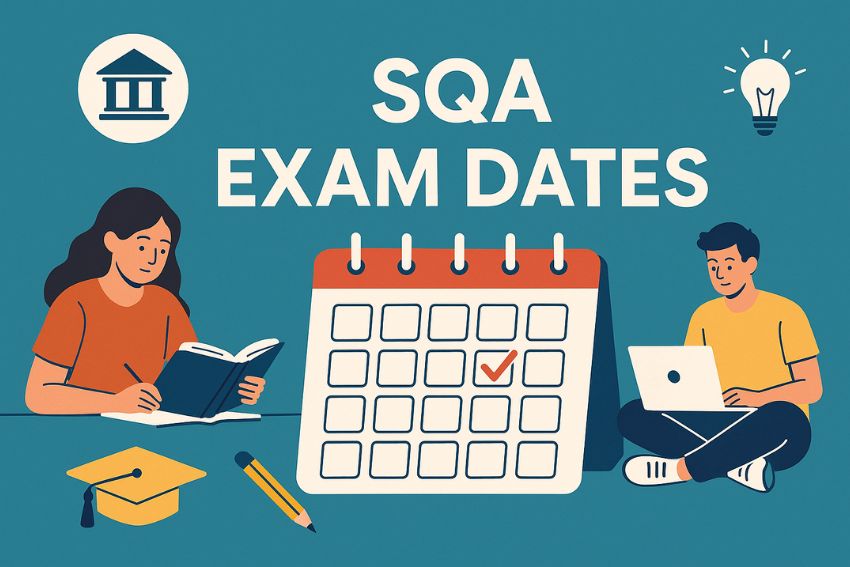If your child is in Year 6, you’ve probably heard about SATs. Year 6 SATs are the tests they take at the end of primary school. For many parents, it can feel confusing – what are the tests for, when do they happen, and how can you help your child?
This blog will walk you through everything you need to know about Year 6 SATs 2025. We’ll go over the test dates, what’s in each paper, how the scores work, and how to support your child without adding pressure. You’ll also find links to useful tips, practise resources, and answers to common questions.
What Are Year 6 SATs?
Year 6 SATs are national tests taken by pupils near the end of primary school. They cover key areas in Maths and English and are the same for every school in England.
The tests are designed to show how much a child has learned during their time in primary school. They give a clear picture of a student’s strengths and where they might need more support.
SATs also help schools understand how well they are teaching the curriculum. The results are used to look at overall school performance, but they also support teachers in planning the next steps for each child – especially as they move on to secondary school.
SATs 2025 Dates and Timetable
In 2025, SATs week will take place from Monday 12 May to Thursday 15 May. During this week, children will sit several short papers under timed conditions. Here’s how the week is set out:
| Monday 12 May | English grammar, punctuation and spelling (Paper 1: Questions + Paper 2: Spelling) |
| Tuesday 13 May | English Reading |
| Wednesday 14 May | Maths Paper 1: Arithmetic Maths Paper 2: Reasoning |
| Thursday 15 May | Maths Paper 3: Reasoning |
It’s worth noting that writing and science are not tested through formal exams. Instead, teachers assess these in the classroom over time.
Year 6 SATs Subjects and Format
Year 6 SATs focus on two main subjects: English and Maths. Each subject is split into different papers, and each one tests a specific skill.
Year 6 SATs – English
Grammar, punctuation and spelling (GPS):
This is made up of two papers. One focuses on grammar and punctuation questions, while the other is a spelling test.
Reading:
This paper checks how well your child understands different texts. They’ll read a few short passages and answer questions about them.

Year 6 SATs – Maths
Arithmetic:
This paper is all about quick calculations — adding, subtracting, multiplying, and dividing.
Reasoning (Papers 2 and 3):
These papers test how your child solves word problems and applies logic. For extra help, take a look at our blog on Year 6 SATs reasoning questions.
Teacher Assessments
In addition to the test papers, your child’s writing and science are assessed by their teacher over time. These results are based on classroom work and are sent to secondary schools along with the test scores.
How Year 6 SATs Are Scored?
SATs papers are marked externally, and each one gets a raw score, that’s the number of marks your child got on the paper. This is then turned into a scaled score, which makes it easier to compare results across the country. Here is Year 6 SATs scores explained :
The scaled score ranges from 80 to 120, with 100 being the expected standard.
- A score of 100 or more means your child has met the expected level.
- A score below 100 shows that your child may need extra support in that subject.
There’s no pass or fail in SATs. The results are simply used to highlight strengths and areas for improvement, both for your child and their school.
How to Help Your Child Prepare for SATs
Supporting your child during SATs preparation doesn’t need to be stressful. With the right routine and mindset, you can help them feel more confident and ready for exam week. Here are some simple but effective tips:
- Start early and plan ahead: Don’t leave revision to the last minute. A clear timetable can spread the workload and reduce pressure.
- Use SATs past papers: These help your child get used to the format and types of questions. Try one or two each week.
- Focus on tricky topics: If your child finds fractions or spelling hard, give those areas extra time and attention.
- Mix up revision methods: Use flashcards, videos, online games, or practise worksheets to keep things interesting. You can try these websites to make it more fun : Quizlet and Kahoot!
- Build in short, daily sessions: Twenty minutes a day is often more effective than cramming once a week.
- Encourage regular reading and mental maths: These daily habits help improve comprehension and arithmetic without feeling like revision.
In the end, you need to stay positive and praise the effort they put in, not just results. A confident and calm mindset goes a long way.
What Happens If My Child Misses Year 6 SATs?
If your child misses one or more SATs tests due to illness or other reasons, don’t panic. Schools can record this as an absence, and there’s no penalty.
Supporting Your Child During SATs Week
SATs week can feel intense, but a calm routine at home makes a big difference. Try to stick to early bedtimes so your child feels rested each morning. A healthy breakfast helps them stay focused, while avoiding sugary snacks can keep energy levels steady. It’s best to skip last-minute revision and instead encourage quiet reading or downtime in the evenings. Offer lots of encouragement and remind them that effort matters more than scores. If you have any concerns, don’t hesitate to speak with their teacher. With your support, SATs week can feel much more manageable.

What Happens After SATs?
SATs results are usually released to schools in early July. Your child’s school will inform you of the exact date and how you’ll receive the results. This could be via a printed report sent home or shared at a parent meeting. The report will include your child’s scaled scores for reading, maths, and grammar, punctuation and spelling, along with teacher-assessed results for writing and science.
Secondary schools sometimes use SATs results to group students by ability, especially in maths and English. However, these groupings aren’t fixed. Teachers will consider other information too, like school reports, teacher observations, and internal assessments done in Year 7. So even if SATs didn’t go well, your child still has a fresh start in secondary school.
It’s also worth remembering that SATs measure only a small part of your child’s ability. They don’t assess creativity, teamwork, resilience, or enthusiasm, all qualities that matter deeply in school and in life. If you have concerns after receiving the results, speak to your child’s teacher. They can help you understand the scores and suggest ways to offer extra support if needed.
Conclusion
SATs can feel like a big deal for both children and parents. But with the right support, they become a chance to celebrate how far your child has come. Start preparing early, build a steady routine, and focus on encouragement rather than pressure.
Remember, SATs are just one part of your child’s learning journey, not a measure of everything they can do. If you feel your child needs extra help, online tutoring can make a real difference. A good tutor can offer personalised support and help your child feel more prepared for test day. With your support, and the right resources, your child can approach SATs feeling calm, ready, and proud of their hard work.
FAQs
What is a good Year 6 SAT score?
A scaled score of 100 means your child is working at the expected standard. Scores above 100 show they’re working above that level. The highest possible score is 120, and the lowest is 80.
Do Year 6 SATs predict GCSE?
SATs results give a snapshot of your child’s learning at the end of primary school. While they may help schools set early targets, they don’t predict GCSE results. A lot changes between Year 6 and Year 11, and every child develops at their own pace.
How long do year 6 SATs last?
SATs tests are spread over four days in May. Each paper lasts 30 to 60 minutes, depending on the subject. There are six formal papers in total, covering grammar, spelling, reading, and maths. Writing and science are assessed by teachers over time, not through timed tests.
How do I pass my SATs Year 6?
There’s no pass or fail in SATs, but doing your best is what matters. Start revising early, practise past papers, focus on hard topics, and ask for help if needed.








